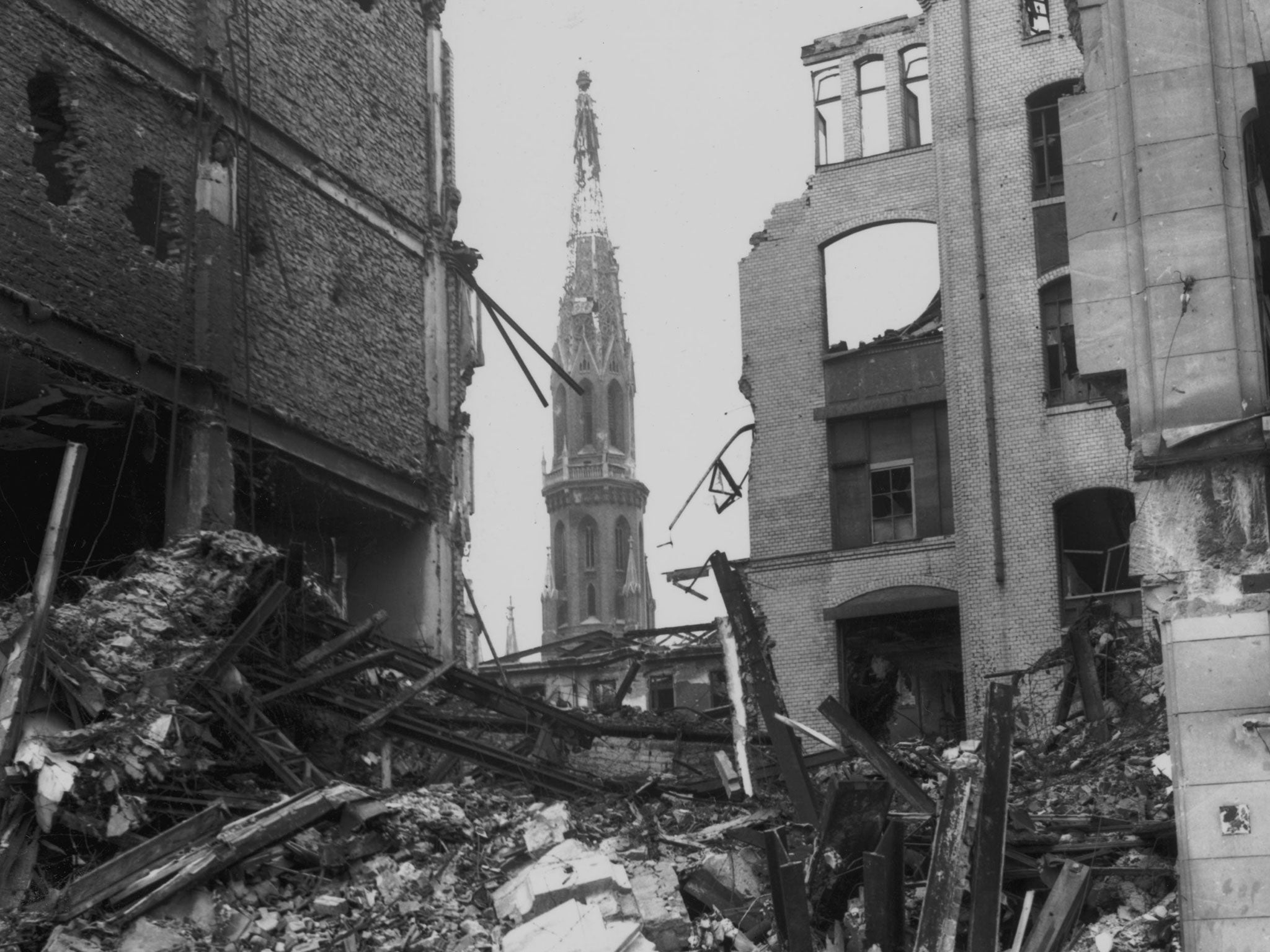The German War: A Nation Under Arms 1939-45 by Nicholas Stargardt , book review
A disturbing study captures the voices of ordinary Germans during the war

Your support helps us to tell the story
From reproductive rights to climate change to Big Tech, The Independent is on the ground when the story is developing. Whether it's investigating the financials of Elon Musk's pro-Trump PAC or producing our latest documentary, 'The A Word', which shines a light on the American women fighting for reproductive rights, we know how important it is to parse out the facts from the messaging.
At such a critical moment in US history, we need reporters on the ground. Your donation allows us to keep sending journalists to speak to both sides of the story.
The Independent is trusted by Americans across the entire political spectrum. And unlike many other quality news outlets, we choose not to lock Americans out of our reporting and analysis with paywalls. We believe quality journalism should be available to everyone, paid for by those who can afford it.
Your support makes all the difference.We still know little about how ordinary Germans saw the Second World War, what they thought they were doing and why they fought so doggedly to the absolute end – quite unlike their conduct in 1918. Trying to make sense of the mood and thoughts of 80 million-odd people is an immense task but Nicholas Stargardt has made a terrifically good stab at it, mixing a multitude of individual voices with those of community leaders, such as Catholic bishops, and a handful of voices who pop up regularly throughout the war and whose evolving opinions steer and bind the narrative.
One of those voices belongs to Hans Albring, a priggish young Catholic first encountered kicking his heels in Germany, again in occupied France and later on the Russian front. Judging from his letters, Albring spent much of his time in France nosing through second-hand books shops, having ecstasies at mass in Poitiers cathedral and being apologetic to the French who – like many Germans – he despised and admired at the same time.
A “good” German, you might think, someone caught up in the Nazi whirlwind and making the best of it. But then he reappears in Russia, coldly observing piles of Jewish corpses – no tears for them – and dismissing their annihilated villages as “nests”. One of Albring's mentors, Bishop Galen of Münster is equally hard to read. One moment he is courting death by courageously denouncing the Nazis for killing the mentally ill, the next he is hailing the invasion of “Jewish-Bolshevik” Russia.
As these two men showed, the Germans did not have one attitude to the war but several. There was semi-awkwardness about occupying France, indifference to Poland – whether Germany conquered it or not – and a real, enthusiastic hatred of Russia. Regions reacted differently as well. Prussian evacuees were jeered in Bavaria. Public executions of captured Poles drew excited crowds in Protestant heartlands but were so unpopular in the Catholic Rhineland that the Nazis stopped them there at once.
What comes through in the book is the success of the Nazi propaganda machine in getting its message across. Under Goebbels's watchful eye, German wartime radio played an absolute blinder. Cheery, lowbrow and moralistic, it convinced most Germans that bullying outsiders manipulated by “World Jewry” had pushed Hitler into a war he never wanted. Elitist cultural programmes were dumped for chat shows and an immensely popular three-hour special every Wednesday, when radio stars performed request songs for servicemen at the front. It sounds as though the whole of Germany tuned in, sung along and wept. As the war came closer to the Reich, the Nazis efficiently organised evacuations and dealt with refugees, which Stargardt says helps to explain why German society did not implode in 1945 as it did in 1918.
What is surprising about this book is the complete lack either of remorse or of curiosity. The voices here rarely refer to Hitler, Nazis or Jews. They are practical, resourceful, resolute, occasionally despairing, but unquestioning. When the Allies began flattening German cities in 1943, people were shocked and disappointed but their main demand was simply for revenge. If a town or part of a city was spared from air raids, it was often said that this was because “the Jews” had earmarked it to live in after the war. It is comforting to imagine that even in a totalitarian society there will be people intelligent enough to discern what is behind the veil, tell the truth from lies and understand what is really at stake. Unfortunately, this disturbing book shows that this is not always the case.
Join our commenting forum
Join thought-provoking conversations, follow other Independent readers and see their replies
Comments